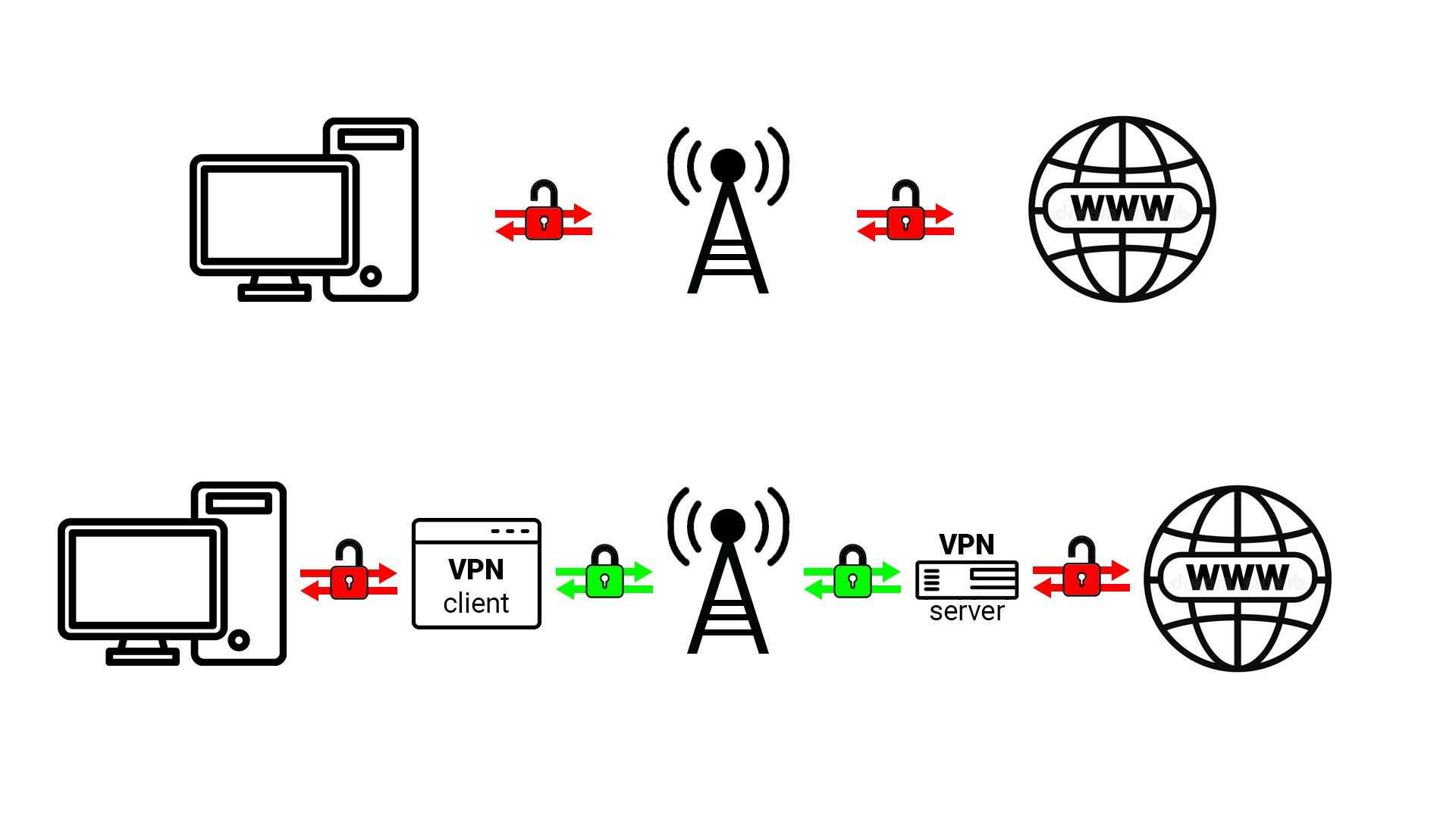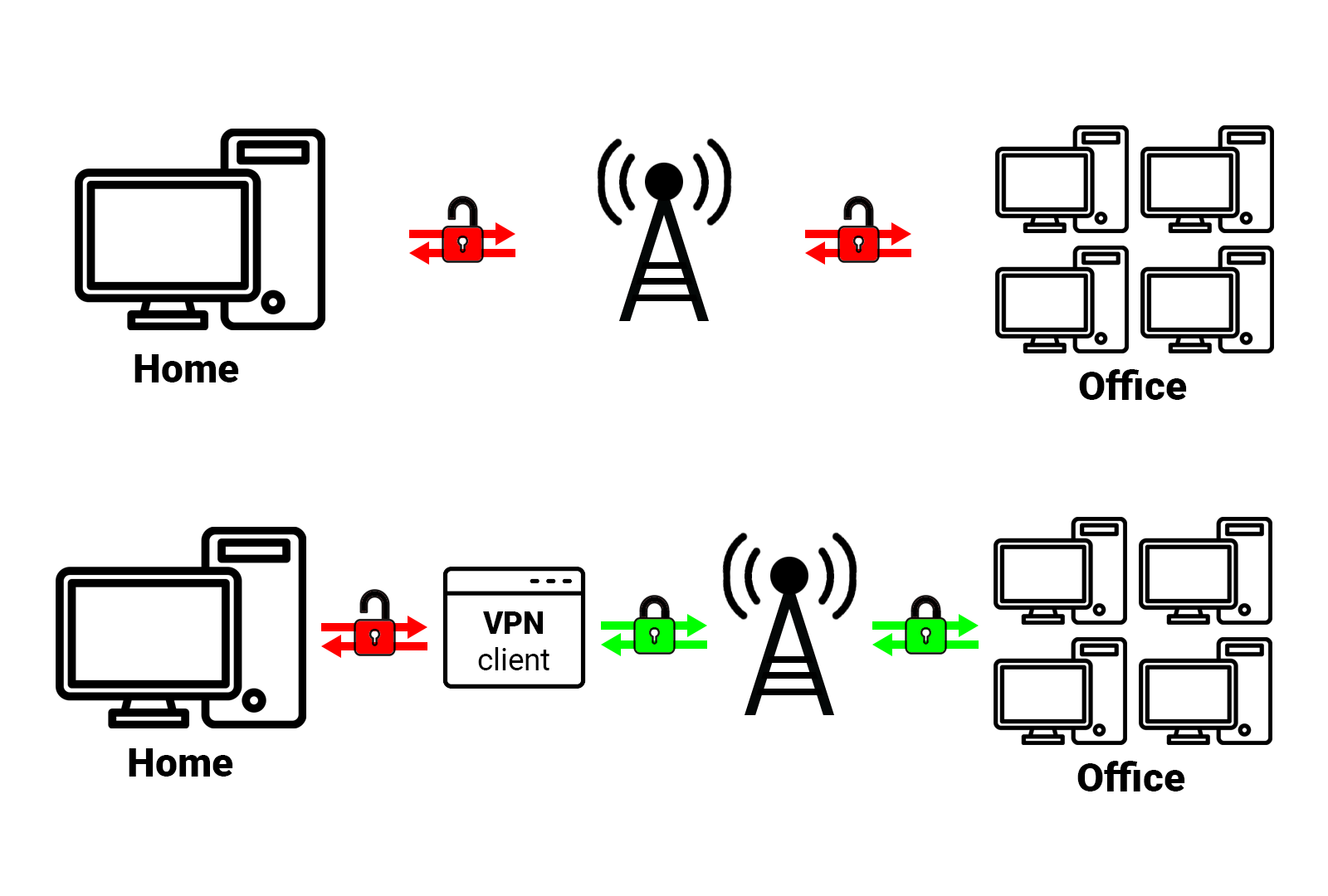VPN service is used primarily to protect company data and slightly to save money. But are all VPNs equally safe? See our article for more details.
VPN is software that has gained much popularity in recent years. Thus, the pandemic has led to a significant number of companies going online, and the use of technology has multiplied. This is because the number of cyber attacks on businesses is constantly growing. For example, according to Positive technologies, the number of attacks on organizations in the second quarter of 2022 has increased by 26% compared to the previous quarter.
VPN helps to protect the business’s files and accounts, so all companies are encouraged to use this technology.
What is VPN?

VPN is an abbreviation for Virtual Private Network. In other words, it is a technology for internet security. You can use it to achieve anonymity and privacy. This is especially important for companies that store business data (including trade secrets) on servers with internet access. Sooner or later, the business will come in sight of intruders who will try to make a cyberattack. VPN allows you to protect important company data.
This technology uses reliable and advanced encryption algorithms. This creates a virtual tunnel with a high level of security through which all the information goes to the remote virtual server. At the moment of data transfer, a hacker may try to steal the data or break into the system. Even if they manage to bypass the tunnel protection, the attacker gets a random set of elements.
You need a special encryption key to decrypt this random set of characters. Only authorized parties have it. They include only those persons who are officially granted access. An unauthorized person (for example, a hacker) who has no encryption key will not be able to decrypt a random set of data. So, this person will not be able to use the information in any way.
Why use VPN?

The list of VPN applications is quite extensive. Let's look at why companies may need to use this technology:
- data transfer protection – trade secrets are important information that should not fall into the wrong hands;
- protection during remote work – a large number of people work remotely, which panders to fraudsters to intercept files;
- transaction protection – fraudsters often try to intercept financial information by any means;
- savings on booking tickets, renting accommodation and cars – it can be more profitable and cheaper in some regions.
To make it more transparent, let's look at the example of how a VPN works.
The company accountant makes annual reports and connects to the database on the server. All requests to the database, as well as responses in the opposite direction, go through IXP (intermediate point of file exchange in the online space). Suppose a hacker has connected to the same IXP. If they manage to bypass the protection, they will track all the transmitted data. If we make an analogy, it's something like tapping a phone line.
However, our accountant uses a VPN service because management requires it. When VPN is enabled, all data transmitted to the server are encrypted. That is, the fraudster will only see some characters he can't even read, let alone use. Without a VPN, they would read these files like an open book.
VPN-protocols
A VPN protocol is the software code on which each VPN service is based. In other words, this is the foundation or base on which the reliability and quality of work depend. There are many protocols, each of which has its own characteristics and disadvantages. The chosen system will determine the security, speed of connection, efficiency of problem solving, and so on.
Below are a few characteristics that we recommend to pay special attention to in the selection process:
- What platforms are supported. Some services can be universal and work with any operating system. Others can only be combined with specific platforms.
- What networks are supported. Not all protocols are supported on the same networks. Therefore, there are VPN services that offer their services only in a particular country.
- What’s the operating speed. VPN always slows down the Internet connection. But this slowdown can be either significant or insignificant. This factor is very important to consider, especially if the load will be enormous.
- What level of security is provided. Different protocols are based on different programming codes. This means that the level of protection and the tasks to be performed can vary significantly.
Below are several of the most commonly used protocols in VPN servers. Let's take a brief look at them:
- OpenVPN. This is the most commonly used option, on which a huge number of premium VPN services are built. Its main advantage is high speed. However, security is also at the top level.
- L2TP/IPsec. It is much the same as the previous protocol, but the speed and security characteristics are somewhat lower. It is used only when OpenVPN cannot be used.
- IKEv2/IPsec. This protocol has a completely different code, which is focused on mobile devices. Its main advantage is a quick reconnection to the network. This is important in the underground, on ground floors, and so on.
- SSTP. It only works with Microsoft software as it was developed by this company. Overall, it is a great option. Unless, of course, you are not confused by its ability to work only on certain devices.
- WireGuard and SoftEther. These are the two most recent and modern VPN protocols similar in structure to OpenVPN. However, they are superior in both speed and safety. In the future, they may displace it permanently.
When selecting software to enhance the security of data transmission on the Internet, we recommend paying special attention to the VPN protocol used. If the speed is low, security is not guaranteed, or there are any other significant disadvantages, it is better to consider other services.
Status of VPN in other countries
In the following countries, VPN is banned or highly restricted in use:
- China;
- Iraq;
- UAE;
- Turkey;
- Belarus;
- Oman;
- IRAN;
- DPRK;
- Turkmenistan;
- Myanmar;
- Russia.
If you plan to go to any of the above countries, find out in advance whether you can use a VPN there and the terms of use.
VPN weaknesses
VPN technology also has its weaknesses. These include, but are not limited to, the following:
- Internet connection speed reduces;
- Relatively reliable services have to be paid for;
- Free VPNs are often highly unreliable;
- In some countries, the technology is restricted or banned;
- Many sites block connections via VPN.
Nevertheless, data security is more important and significant for many companies than all of the above weaknesses.
Paid and free VPN services
There are several ways to use VPN technology. The easiest way is to use ready-made services: free or paid. You do not have to pay for the services in the first case; their payback comes at the expense of obtrusive advertising. In addition, client data from such services are also sold to advertisers. While for individuals, this is often not something unpleasant, for large companies with their corporate secrets, it can be a significant problem. Therefore, we do not recommend choosing free services for the business.
Paid VPN services are not the best option either. First, they can also sell the data to advertisers or redirect it to law enforcement authorities if they request it. There are often cases of leaks of user information. For all this, the company will also pay for VPN services. Of course, this is not profitable.
There is another option: to set up your own VPN server on a VPS in the data center of a reliable hosting provider. Then, only you will know your data. In addition, the cost of renting a virtual server is cheaper than rates for most VPN services, and, in fact, on the same virtual server, you can hold not only VPN but also many other useful services: the company website, email client, databases, video conferencing, and many others.
Do you want to secure your company's data? Read our detailed instructions on how to install and configure your own VPN on VPS:


Comments